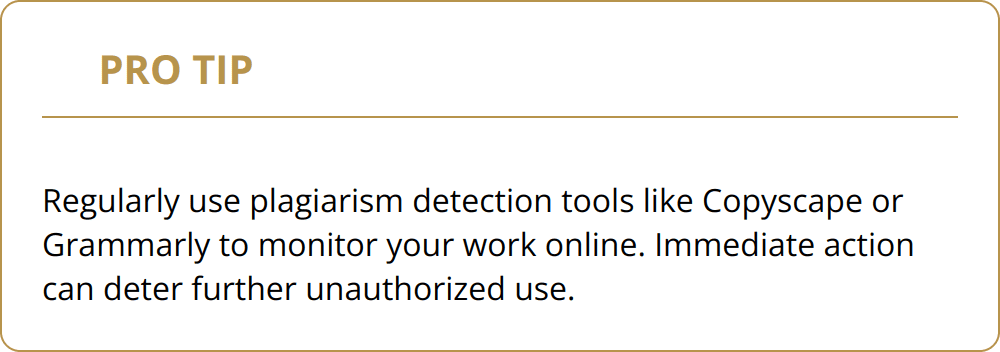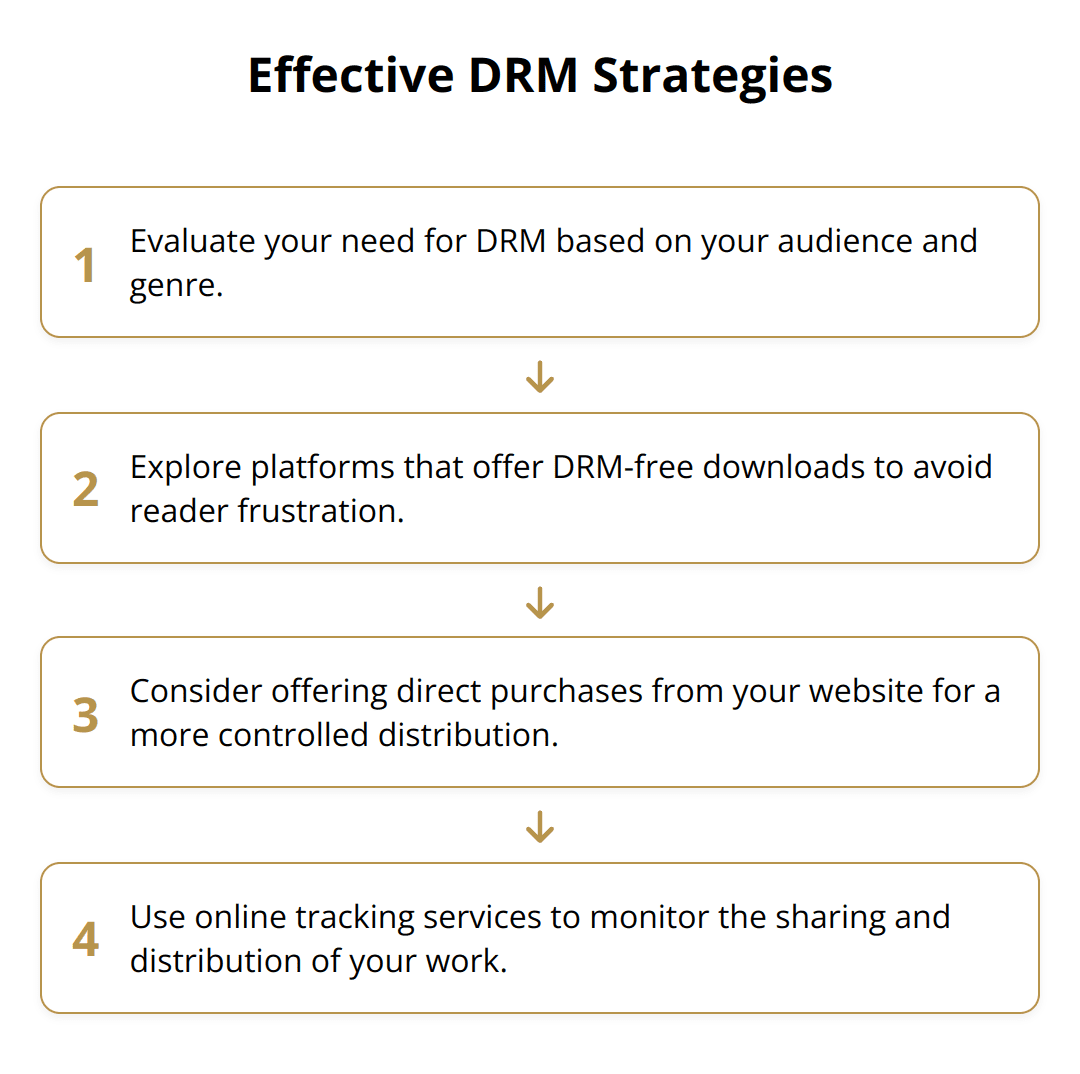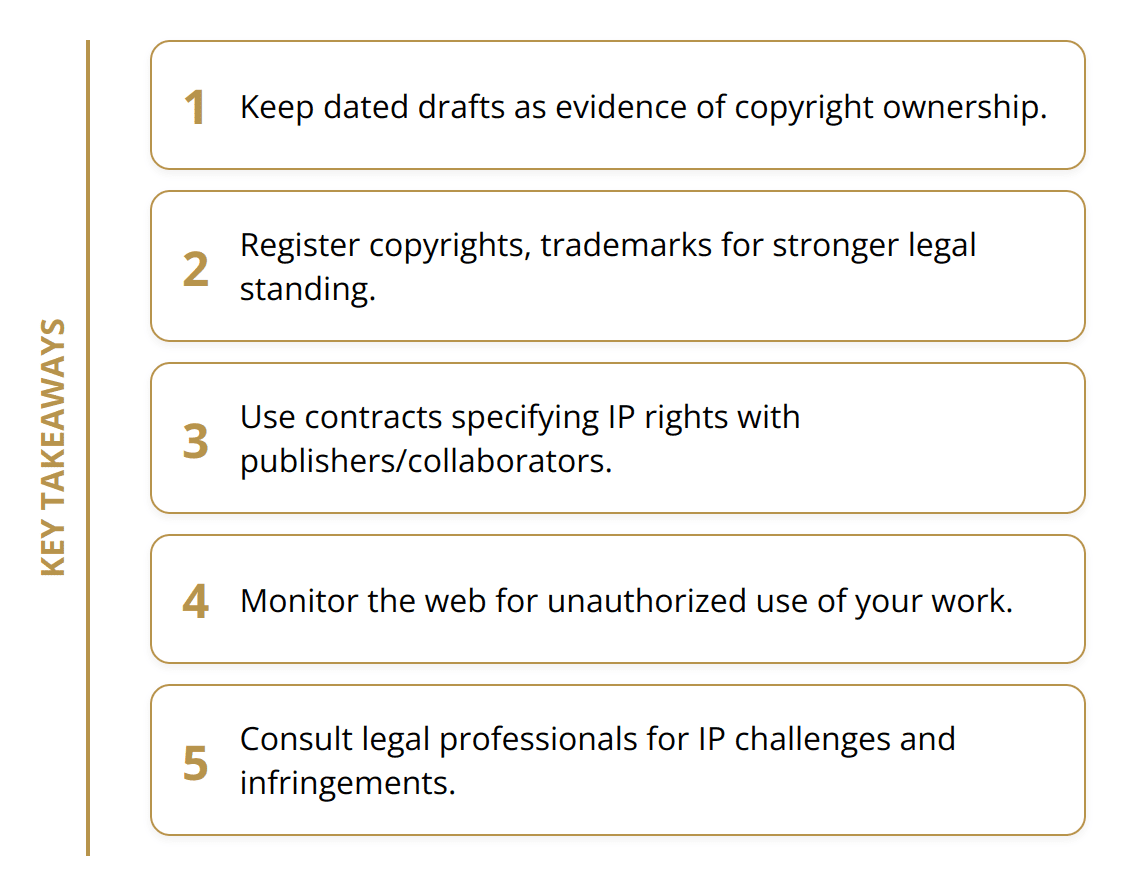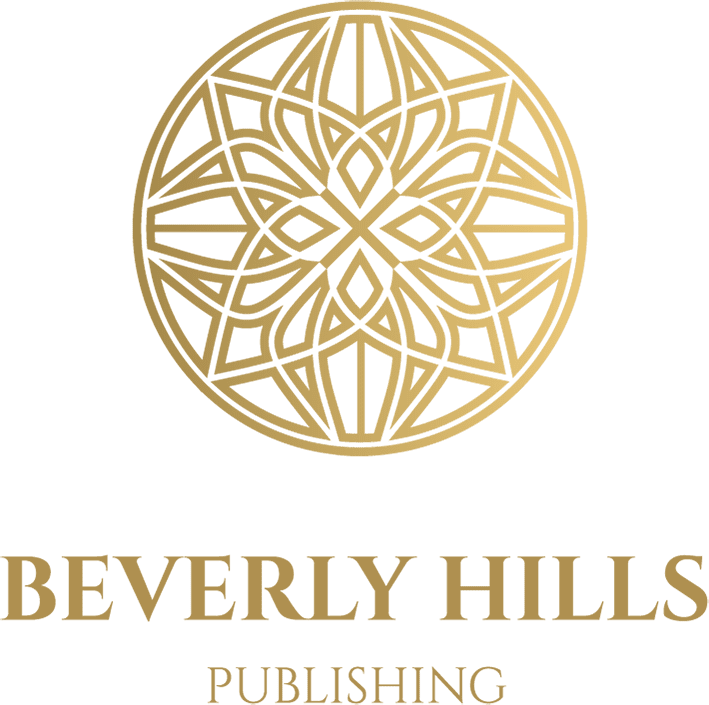by Andrea Albright

As authors, understanding and protecting your intellectual property (IP) is paramount to your success and peace of mind. We at Beverly Hills Publishing know that navigating IP rights can seem daunting, but it’s essential for safeguarding your work.
In this blog post, we will equip you with the knowledge and practical tips you need to confidently protect your creative output and handle common IP challenges. Let’s explore the landscape of intellectual property and how you can ensure your work is well-protected.
Protecting Your Work
In the realm of authorship, understanding and actively protecting your intellectual property (IP) isn’t just recommended; it’s essential. Intellectual property forms the backbone of your creative and financial rights as an author.
IP isn’t just a fancy legal term. It’s the recognition that the content you create isn’t just ephemeral—it’s a tangible asset that deserves protection. For authors, IP comprises the stories, characters, expressions, and ideas that you’ve put into words. It’s what sets you apart and what, ultimately, can generate income and legacy.
Key Intellectual Property Rights for Authors
Authors should be particularly aware of copyright, trademarks, and design rights. Copyright automatically vests upon the creation of original work, granting authors the exclusive right to use, reproduce, and distribute their work. Trademarks could cover book titles or series names, offering protection against others exploiting your brand. Design rights might protect unique book cover designs. Understanding these can be the difference between your work’s success and its misuse by others.
The Importance of Intellectual Property
It’s not just about protecting what you’ve already created; it’s about securing the future of your work. With the right IP strategies:
- You maintain control over how your work is used and distributed.
- You open revenue streams through licensing and selling your work.
- You protect the uniqueness and originality of your creations.
Now, how do you ensure your work is well-protected?
- Document The Creation Process: Keep dated records of drafts and notes. This can act as evidence of your work’s evolution and copyright ownership.
- Understand Copyright Laws: Familiarize yourself with the extent of your copyright protections and how they apply internationally.
- Register Where Necessary: While copyright automatically applies, registering it can offer additional legal benefits. For other protections like trademarks, registration is key.
- Educate Yourself on IP Infringement: Know what constitutes infringement and how to take action if your work is used without permission.
- Consider Legal Advice for Complex Matters: Intellectual property law can be complex. For specific situations, seeking experienced advice can save you a lot of trouble down the line.

.
For authors, IP is not just a legal formality; it’s a safeguard for your creative and financial endeavors. Incorporating IP strategies into your writing career ensures that your hard work and unique voice remain yours, offering both peace of mind and potential revenue. For a deeper dive into copyright and how to leverage your rights, exploring resources like The Importance of Marketing and Promotion in Book Publishing can offer additional insights and strategies to maximize your work’s reach and impact effectively.
Protecting Your Work
Securing your intellectual property (IP) rights is a vital step for authors who want to shield their work from unauthorized use and maximize its value. In this chapter, we’ll explore actionable strategies that can help you protect your work effectively. Following these guidelines can make a significant difference in how you manage and enforce your IP rights.
Registering Your Work for Copyright Protection
Registration might seem like an administrative formality, but it’s one of the most effective tools for protecting your literary creations. Although copyright automatically applies to your work upon creation, registering it with the relevant authority significantly strengthens your legal standing in case of infringement. In the United States, this means filing your work with the U.S. Copyright Office. The process involves a filing fee and submitting a copy of your work, but the investment is worth the enhanced protection and peace of mind it provides.

Using Contracts and Agreements
A clear, well-drafted contract is your first line of defense in safeguarding your rights and specifying how your work can be used. Whether you’re dealing with publishers, collaborators, or licensees, ensure every agreement outlines rights, responsibilities, and the scope of use for your intellectual property. Be specific about the rights you’re licensing out and those you’re retaining. Always have a legal professional review contracts to avoid overlooking potential loopholes.
Monitoring and Enforcing Your Rights
Vigilance is key in protecting your IP rights. Regularly monitor the market and online platforms for unauthorized use of your work. Tools such as Google Alerts can help you track where and how your work is being used across the web. Should you discover infringement, consult a legal professional to assess your options. Depending on the situation, this might involve sending a cease and desist letter or taking more formal legal action. Remember, prompt and decisive action can prevent further misuse and maintain the integrity of your work.

Quick Tips:
- Always back up drafts and documentation related to the development of your work.
- Familiarize yourself with copyright laws in your country and globally, especially if you publish or distribute your work internationally.
- Read every contract thoroughly, and don’t hesitate to negotiate terms that better protect your interests.
- Set up Google Alerts for your book titles, characters, or unique terms related to your work to monitor unauthorized use online.
By taking these steps to protect your intellectual property, you’re not only safeguarding your current work but also ensuring the longevity and success of your literary career. For further reading on leveraging your rights for maximum impact, check out marketing and promotion strategies.
Handling IP Challenges
Navigating intellectual property challenges is essential for authors aiming to protect their work and maintain their rights in the digital age. Authors often encounter a range of issues, from blatant plagiarism to the complexities of digital rights management. Below we discuss practical approaches and solutions to these common problems, emphasizing the importance of staying informed and proactive in defense of your intellectual property.
Plagiarism and Unauthorized Use
Plagiarism and unauthorized use of literary work are rampant in the digital world. It’s relatively easy for someone to copy and paste your work without permission. Identifying and combating this requires vigilance and action. Tools like Copyscape or Grammarly can help detect plagiarism of your work online. When you find instances of plagiarism or unauthorized use, it’s advisable to contact the offender requesting removal or proper attribution. If this approach fails, escalating the issue legally, starting with a cease and desist letter, may be necessary.

Navigating the Digital Landscape
The digital landscape presents unique challenges and opportunities for authors. Digital rights management (DRM) technologies can prevent unauthorized copying and sharing of e-books but may also limit legitimate sharing and frustrate readers. Authors must strike a balance between protecting their work and providing a user-friendly experience for their readers. Offering direct purchases from your website or using platforms that support DRM-free downloads can be a part of this balance. It’s also beneficial to use online services that track the distribution of your work to quickly address unauthorized sharing.

Understanding Fair Use and Permissions
Fair use is a doctrine that allows limited use of copyrighted material without permission for purposes like criticism, comment, news reporting, teaching, scholarship, or research. However, the boundaries of fair use can be vague. When using works by other authors, it’s better to err on the side of caution and obtain permissions whenever possible. Similarly, be prepared to respond to fair use inquiries about your work thoughtfully. Being too restrictive can stifle creativity and limit the dissemination of your work, while being too lenient may undermine your rights.
Quick Tips:
- Utilize plagiarism detection services to monitor the use of your work.
- Regularly review your digital rights management strategies to balance protection with reader accessibility.
- Be informed about fair use to navigate permissions for using others’ works and responding to uses of your own work.
By employing these strategies, authors can better navigate the complexities of intellectual property in the digital age. For more detailed information on managing your digital presence and rights online, reading insights on book marketing strategies can offer valuable advice on balancing visibility with the protection of your IP.
Final Thoughts
In this blog post, we have navigated the intricate landscape of intellectual property for authors, focusing on the safeguards necessary to protect your creative endeavors. Understanding and proactively securing your intellectual property is not just a legal formality; it is an essential component of your career as an author. This journey into the realms of copyright, trademarks, and design rights underscores the importance of knowing your rights and the steps to ensure your work remains uniquely yours.

Key takeaways include the significance of documenting the creation process, the benefits of copyright registration, and the value of thorough contracts and agreements. Additionally, we touched on the necessity of staying vigilant in monitoring your work’s use, understanding fair use, and knowing when and how to take action against infringement.
To successfully navigate these challenges, being proactive is key. The dynamic nature of intellectual property rights requires authors to be continually informed and prepared to defend their work against unauthorized use. Protecting your creative works is an ongoing process, one that is crucial to maintaining the integrity and value of your literary contributions.
At Beverly Hills Publishing, we are dedicated to revolutionizing author success by merging publishing with strategic branding and marketing. Our approach ensures that authors not only protect their intellectual property but also establish leadership within their industries. We offer the tools and knowledge for authors to safeguard their creations effectively while maximizing their visibility and impact.
Remember, your intellectual property is a testament to your creativity and hard work. Taking the necessary steps to protect it is not just beneficial; it is imperative for any author aiming to build a lasting legacy. Engage with us at Beverly Hills Publishing, and let us guide you in not just safeguarding your work, but in transforming your literary achievements into a powerful brand and authorial identity that stands the test of time.














































































